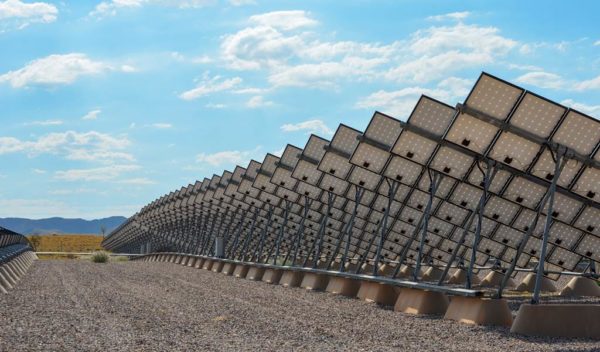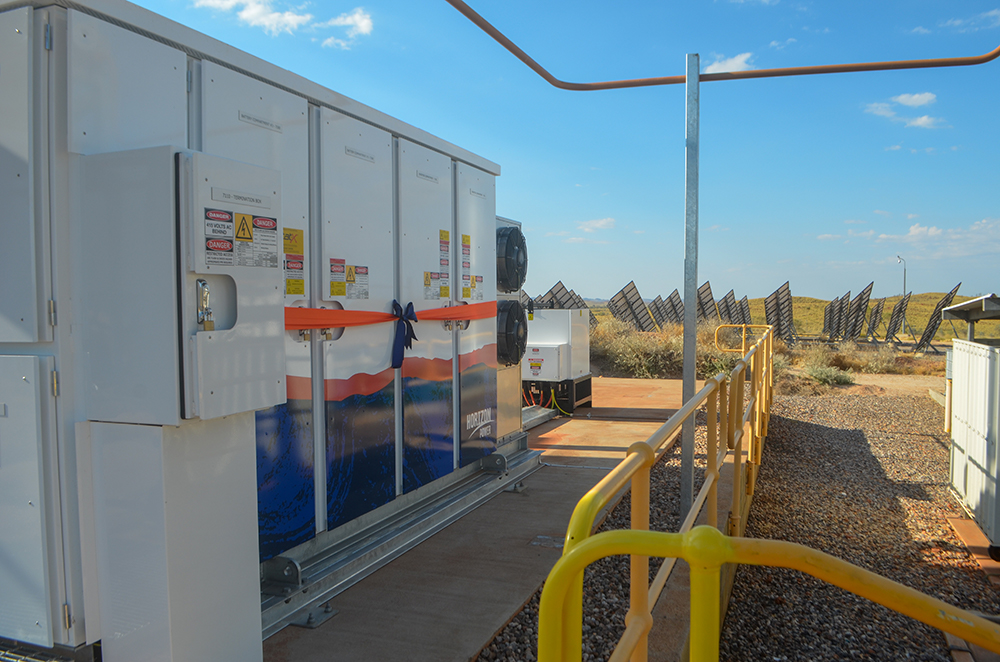With the moniker of ‘Australia’s hottest town’ (though the town of Wyndham disagrees), Marble Bar in Western Australia’s (WA) remote East Pilbara is famed for at one time recording 100 consecutive days of temperatures over 37 degrees Celsius. Obviously, this makes Marble Bar the ideal place to invest in solar panels, and that’s why the WA state government’s WA Recovery Plan has funded the completion and commissioning of a town battery to store excess solar energy.
State-owned regional energy provider Horizon Power’s $31 million Energy Storage in Regional Towns project, which will also see community battery energy storage systems (BESS) installed in Broome, Carnarvon, Exmouth, Wiluna, Yalgoo and Yungngora by the end of 2022, believe Marble Bar’s new BESS will free up more than 100 kW of hosting capacity.
The BESS systems in Wiluna and Yalgoo were commissioned last month, and the towns of Menzies and Gascoyne Junction are also being investigated as potential hosts for a BESS solution.
Marble Bar’s approximately 600 residents will now be able to connect a standard rooftop solar system of 3 kW, which could see their electricity bills cut by an average of $1,275 annually.
Moreover, Marble Bar is already home to a centralised solar farm that generates more than 1 GWh each year.

Image: Horizon Power
Horizon Power’s Energy Storage in Regional Towns project aims to free up around 10 MW of hosting capacity across the aforementioned towns, providing more than 3,000 households across regional WA with the ability to connect their systems.
“We know customers from across our service area have a strong appetite for connecting their own rooftop solar systems and installing batteries like this one in Marble Bar mean we can help them acheive this,” said Horizon Power CEO Stephanie Unwin at an event at the Marble Bar civic centre to commemorate the commissioning.
“This exciting project is just another way we are delivering on our goal to reduce our customers’ energy bills by 10% and have zero refusals when it comes to connecting solar in the next four years.”
WA Energy Minister Bill Johnstone said the BESS systems would make more solar capacity available in regional areas and “is expected to reduce carbon dioxide emissions by 13,000 tonnes a year.” Moreover, “The project roll-out will also support economic development, providing opportunities for local installers to supply solar systems to customers.”
The Marble Bar battery was supplied and installed by WA-based Hybrid Systems Australia.
This content is protected by copyright and may not be reused. If you want to cooperate with us and would like to reuse some of our content, please contact: editors@pv-magazine.com.









By submitting this form you agree to pv magazine using your data for the purposes of publishing your comment.
Your personal data will only be disclosed or otherwise transmitted to third parties for the purposes of spam filtering or if this is necessary for technical maintenance of the website. Any other transfer to third parties will not take place unless this is justified on the basis of applicable data protection regulations or if pv magazine is legally obliged to do so.
You may revoke this consent at any time with effect for the future, in which case your personal data will be deleted immediately. Otherwise, your data will be deleted if pv magazine has processed your request or the purpose of data storage is fulfilled.
Further information on data privacy can be found in our Data Protection Policy.